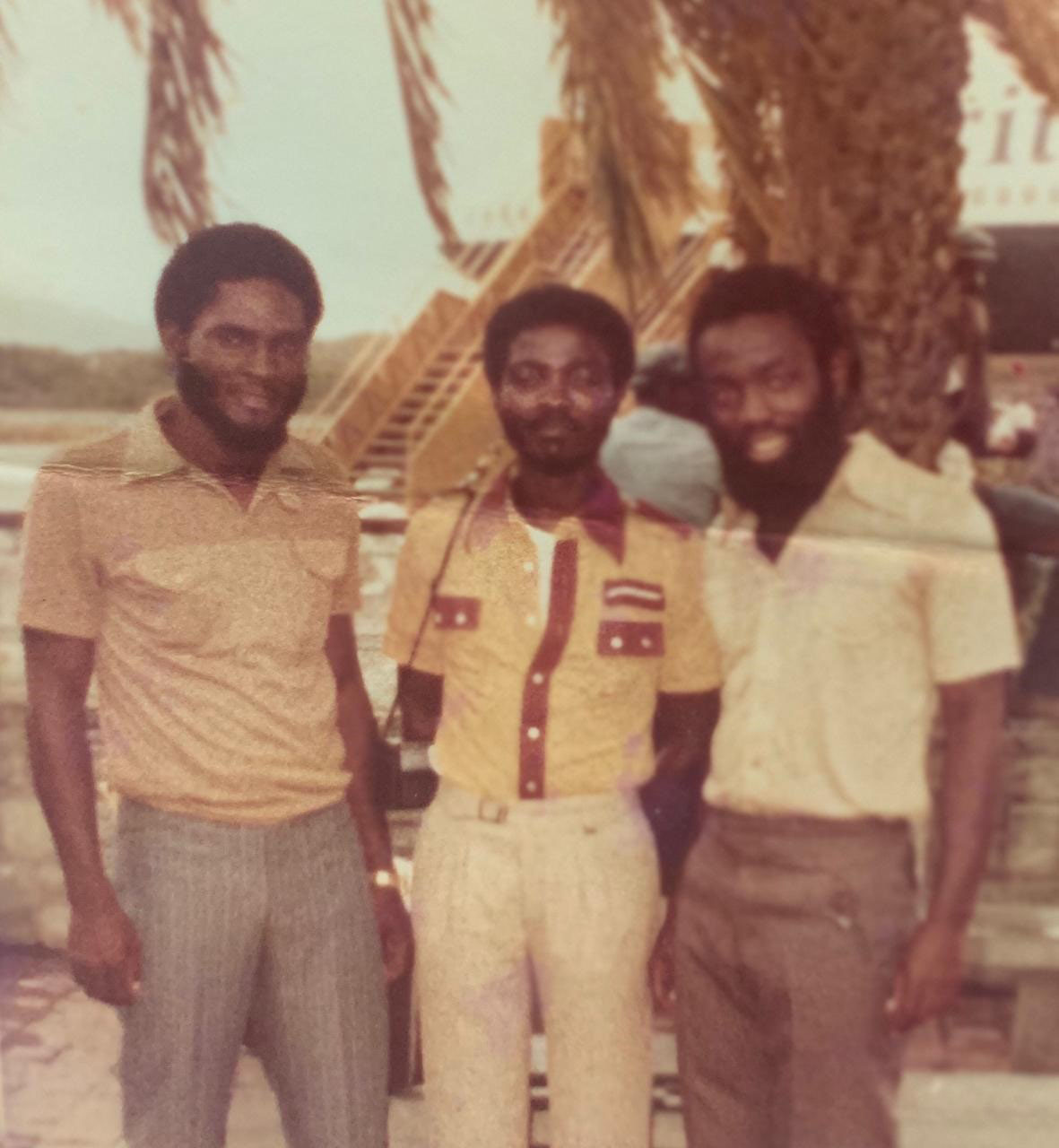
By Theresa Goodwin
A number of individuals who gained notoriety in the country in their field of expertise and navigated similar challenges encountered by beloved family physician Dr Evans Moulon are the latest to reflect on his passing on Tuesday evening.
Among them is former educator and now doctor of veterinary medicine, Dr Radcliffe Robins, who along with Moulon, was among a group of 10 educators who were arrested after taking part in an historic protest during the tenure of Vere Cornwall Bird Snr, then premier of Antigua and Barbuda.
They were later retired in the interest of the public and as a result, were forced to change course in terms of careers, and embarked on a journey which led to their education and training in Cuba.
Dr Robins recalled that it was a very difficult time for them as not only were they dismissed by the government of the day, it was also very hard for them to find work.
Through their membership with the Antigua Caribbean Liberation Movement (ACLM) Robins, Moulon and current Antiguan Ambassador to Cuba Dr George Goodwin were able to secure scholarships to pursue their studies, thereby becoming the first three Antiguans to study in Cuba at that time.
“The period of time in which Evans entered or started his medical career was one of difficulty and struggle. He has always demonstrated social commitment; as a teacher he demonstrated social commitment and as a doctor he did the same,” Dr Robins explained.
He also said his longtime friend and colleague popularised family medicine treating everyone whether or not they had the finances to pay for their care.
Educator Anthonyson King, who was also involved in the heroic teachers’ struggle, shared one particular detail about the deceased medical practitioner that many people may not know.
“His backyard was a small farm with lot of fruit trees and he produced and sold eggs with pride. Most of the time I spoke to Dr Moulon, it was not about medicine; it was mostly about farming and maybe 10 percent of the time, medicine,” King said.
Health official Dr James Knight told Observer he first met the physician in 1971 when they came together to form the United Students Council in eight secondary schools.
Interestingly, Dr Knight was part of the ACLM’s executive board, which approved the first three scholarships for the three Antiguan students to study in Cuba. In 1982, Dr Knight was a part of the third contingent to journey to Cuba to pursue further studies.
“We were both in Cuba for a period of five years, we lived in the same building for only two of those years. Over the years, we were all strangers abroad in circumstances, which were sometimes difficult, where we had to assist each other and there was great comradery among us,” Dr Knight recalled.
Prominent physician Dr Philmore Benjamin, another Cuban trained doctor, credited Dr Moulon for breaking the ice and opening up a door for many others to follow through.
“Dr Moulon is a pioneer as far as Cuban medicine is concerned because he is the first Cuban graduate to work in Antigua. He graduated four or five years before me and has made some great contributions. He also broke the ice because in those days, doctors returning from Cuba were finding it difficult to get jobs. It was only after the late Leonard Tim Hector made representation to the Cabinet, they were able to gain employment,” Benjamin said.
Another Cuban-trained medical doctor, Delrose Christian, also reflected on Moulon’s passing.
For Christian, Dr Moulon was an older brother whom he looked up to. Up until the time of his death Dr Christian was Moulon’s primary care provider.
“Moulon was a rational, reasonable type person who tends to see both sides of everything. He always had a sense of optimism despite any adversity,” Dr Christian explained. “He was also the one who encouraged me to go to Havana and he graduated two years ahead of me.” For several years, Dr Moulon treated many Antiguans and Barbudans at his office on the corner of Cross and New streets. Being fluent in Spanish, he was also credited as being the first doctor to provide healthcare services to the Hispanic community after returning from Cuba.
